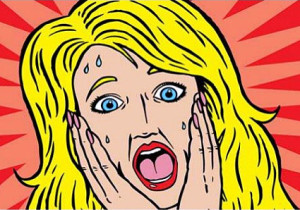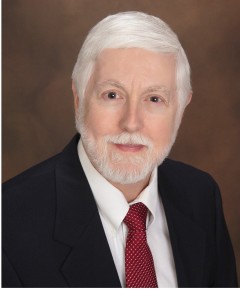
[Editor’s Note: Dr. Young recently collaborated on this piece on hoplophobia and its effects. The article was first published as “What Gun-Haters Feel” at the Slow Facts blog by Rob Morse, who also co-hosts The Polite Society Podcast. It is edited for publication here with permission.]
I don’t like horror movies. There is nothing attractive about sitting and waiting for the monster to jump out of the dark screen at me, even though the fear is irrational. Hoplophobes are people who have an irrational fear of firearms. What is it like for them as they wait for their monster to attack, and can they be helped?
…if you have an irrational fear of inanimate objects
People with irrational fears of guns express those fears in several ways. They may experience guns as having lives of their own. They think a gun will jump off the dark shelf and attack on its own.
These exaggerations can seem funny to gun owners. Many of us take our friends shooting. We start them with low powered .22 rimfire weapons. These come in every size from child to adult. If they want more, there are mid-power firearm such as the .223. Originally designed to shoot small pests, this rifle throws a light bullet with little recoil. It can fit most adults when outfitted with an adjustable stock and comb.
Perhaps you caught on: we’ve just described the dreaded “assault rifle”.. as well as dozens of other firearms we’ve had for a hundred year. The hoplophobe sees them as death-dealing murder machines, though it remains a “girl’s gun” to many of us. Unfortunately, hoplophobia doesn’t end there.
…if you displace your anxieties onto others in order to feel better
Hoplophobes empower firearms in other ways. They invest these inanimate objects with the power to cloud men’s minds. They believe that guns sing an irresistible siren song that can seduce healthy people to unimaginable violence. They attribute evil intent more to guns than to those who wield them. Projecting this kind of influence onto guns may actually demonstrate the gun-hater’s fear of his neighbors. Such fear can be an oblique confession of the gun-haters’ own lack of self-control. They are displacing their own anxieties onto others in order to feel better about themselves.
…if your irrational attitude towards guns prevents you from addressing them logically
Condemnation plays an important part in their battle against irrational fear. The more strongly they exaggerate the power of firearms, the more energetic their attacks against gun and gun owners, the less they feel controlled by their fear. They empower the monster in order to vanquish it. That sounds irrational to most of us, but hoplophobes can’t address firearms logically because of the overwhelming irrationality of their relationship to these devices of plastic and metal.
…if you proclaim your feelings about guns as loudly as possible
Many hoplophobes are unusually loud in their condemnation of guns and gun owners. Compare that to other fears we experience. We don’t hear people who are afraid of dogs or spiders condemn those animals with the vehemence that hoplophobes show for guns and gun owners.
Wealthy gun-phobics have spent scores of millions of dollars on their attacks. There may be method to their madness, some purpose to their high-pitched volume. What if these professional gun-haters are not afraid of guns at all? Professional actors are not afraid of monsters when they are off screen. The fear that movie actors portray in front of a camera is simply part of a role they play.
What if the professional gun-haters are more like actors playing to elicit our fears of guns and violence? They want us feel the emotions they portray in front of the news cameras. They want us to join in their tribal chant to slay the evil gun monster. This may also help explain why so many paid gun-haters have armed security guards protecting them where they live and work.
…if you have difficulty facing the idea of violence and injury
There is a more sympathetic way to understand avoidance of firearms. All guns are potentially lethal. As I explained to a young nurse who had just taken her first shots, all guns can kill, some more surely than others. Do you remember the videos they showed about car crashes in driver’s education class? Not fun. Imagining the use of lethal force is not attractive for most of us. Our respect for life is a good thing that we shouldn’t want to lose. This reluctance to look at human injury and death has important implications, both good and bad.
Most of us will never be violent towards another person. Unfortunately, we can carry that innocence too far. Some may be unable to respond aggressively even when that would be the only healthy response. They may reject the tools that would be needed so that they needn’t ever face their inadequacy.
…if you project your aversion to violence onto those who have to make split-second decisions
It takes great emotional maturity to observe violence, injury and death, especially when they result from hard choices that we or someone else had to make. We may also find ourselves reluctant to honor a guardian who does stop an evil act by means of lethal force. We may so need to imagine there can always be a perfect and peaceful outcome that we denigrate the guardian’s unavoidable decision.
Emotional wisdom accepts that peaceful outcomes are not always possible. A peaceful outcome might mean surrender, and sometimes the cost of surrender is too high. We know we should only use force proportional to the risk. We only use lethal force to protect human life. We have to remember the people a guardian saved as well as those he could not or was forced to hurt.
…if you claim your feelings supersede the autonomy and safety of others
The professional media campaign against guns and gun owners makes some very bold claims. Hoplophobes claim that their uneasiness around armed civilians is more important than the right of ordinary people to be able to protect themselves. Their fear is supposedly more important than our lives, our families, and our communities. These gun-phobes claim they know what is best for all of us. The result is that they treat gun owners as ignorant, less than equal and not worthy of respect. That is degrading, and demands an unjust sacrifice from everyone else to placate their irrational fear.
These fears need to be faced in ourselves and others. Only then can we make healthy decisions and live safer, less fearful lives.

— Rob Morse blogs, writes and podcasts about the right of self-defense. He competes in local IDPA matches and is an NRA pistol instructor.
All DRGO articles by Rob Morse.

— DRGO editor Robert B. Young, MD is a psychiatrist practicing in Pittsford, NY, an associate clinical professor at the University of Rochester School of Medicine, and a Distinguished Life Fellow of the American Psychiatric Association.
